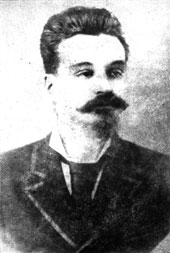3.5.6 On foot and barefoot, published in 1890 by Ramón Roa (1844 – 1912)

Ramón Roa’s conspiracy work dates back to around 1856, when he was very young, in his hometown of Las Villas, involved in activities for which he would be forced into exile in the United States. He fought in the liberation struggles of the Dominican Republic and also advocated for the independence of Puerto Rico. He joined the Mambi troops shortly after the Demajagua Uprising, rubbing shoulders with the main architects of the war effort.
“On Foot and Barefoot” was one of the most controversial works of its time, due to its stark depiction of the events of the Ten Years’ War and the despondency that permeates its pages. Despite the author’s good intentions, he lacked political vision, at least in terms of choosing the moment in which the work would be published.
The actions take place between 1870 and 1871. In this work, the author, without a high literary flight but with a strict attachment to historical truth, breaks with the idealization of the heat of combat and presents the authentic picture of misery, fear, desertions, shootings and gruesome deaths in combat, from a completely negative state of mind that denotes a certain desire to escape from circumstances, and on the other hand, with greater humanity than that present in other texts, of archetypal heroes.
To contribute to the authenticity of the testimony, the author reproduces the linguistic registers of the Cuban peasantry and the human types with which they interacted as events unfolded, but a feeling of discouragement prevails, which is very harmful to the development of a new war attempt.
José Martí’s harsh criticism of the work led to a complex, high-pitched controversy with Enrique Collazo, in which other former fighters, men and intellectuals who were ready to take up arms again as soon as the opportunity arose, also participated.
However, one should not doubt the patriotism of Ramón Roa, who, on the other hand, displayed in his verses a committed lyricism that contradicts the attitude of a spoilsport that some attributed to him, as these verses from his poem “The Load” connote:
“Charge!” is the hoarse and thunderous voice
It spreads through the ranks of the warlike squadron,
To them! To the charge! Up! And forward!
It continues repeating in a high pitch.
(…)
The fight drags on and thickets rise
Clouds of smoke and dust amidst the din;
The noise is ceasing… and the man is not frightened
Skulls divided by destructive edge.
(…)
That is why the brave men he leads to victory,
They see the scars that the brave man already has,
They look at him from the homeland as a page of glory
That from one century to another fame will carry.”








